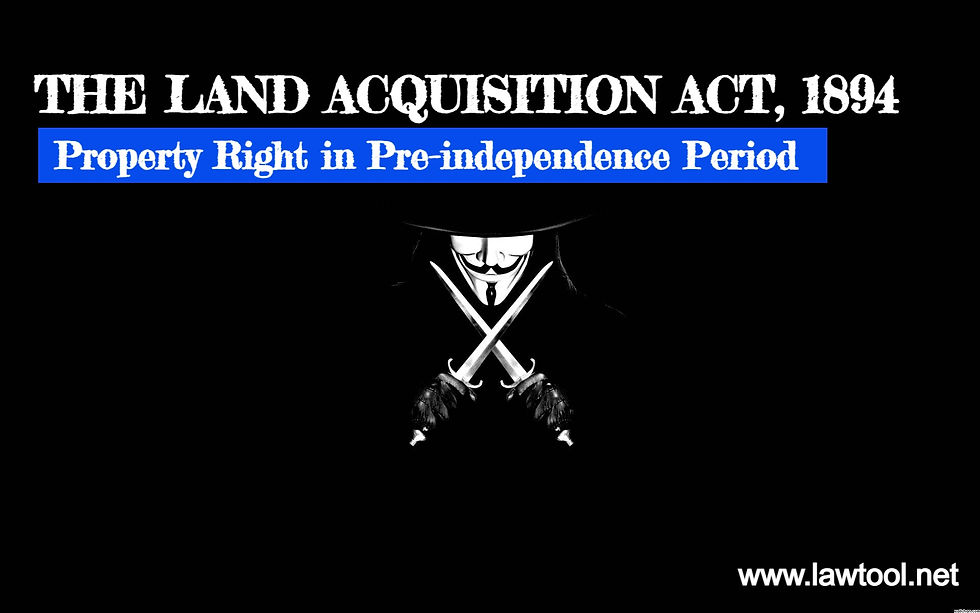Property Right After 44th Amendment
- www.lawtool.net

- Oct 31, 2020
- 2 min read
Updated: Aug 10, 2021
Property Right After 44th Amendment
The Preamble of the Constitution of India envisages that constituting India, inter alia, into a "Socialist" country. Though the Preamble does not add to or subtract from the provisions of the Constitution, the Supreme Court has been reading the enacting provisions of it in the light of the Preamble. The word “socialist”, when read with Article 14, was interpreted to strike down a statute which failed to achieve the socialist goal to the fullest extent, or which adopts a classification which is not in tune with the establishment of a welfare society.
The word socialist when read with Article 39(d) would enable the court to uphold constitutionality of laws of nationalization of private property.
The preamble also envisages the expression of “Social and Economic justice”. This expression involves “distributive justice” what connotes as, the removal of economic inequalities and rectifying the injustice resulting from dealings or transactions between unequal in society. It comprehends more than lessening inequalities of differential taxation, giving debt relief or regulation of contractual relations; it also means the restoration of properties to those who have been deprived thereof by unconscionable bargains; it may also take the form of forced redistribution of wealth as a means of achieving a fair division of material resources among the members of the society. As a result of social and economic justice Articles 19(1)(f) and 31 were repealed by the constitutional forty fourth amendment, now property right is only a legal right.
Thus, the only effect of deletion of Articles 19(1)(f) and 31 is that the right to property is no more a fundamental right and such deletion does not abolish the right of property as they exist under the ordinary law, as for example, the right of a landlord to evict a tenant under the Rent Control Act.Article 31(1) and 31(2) and followed interdependent clauses 3, 4, 5 & 6 were repealed and Article 31(1) was redrafted as Article 300A. Now compulsory acquisition of land for public purpose is implied in the Article 300A. State Government may require land for various public purposes, especially to uplift the down trodden people where economic disparities are prevalent. For meeting this contingency almost all the countries of the world reserve the right to acquire or require land for public purpose. This power of the state government is known as the power of “eminent domain” which has been discussed later in detail.










Comments